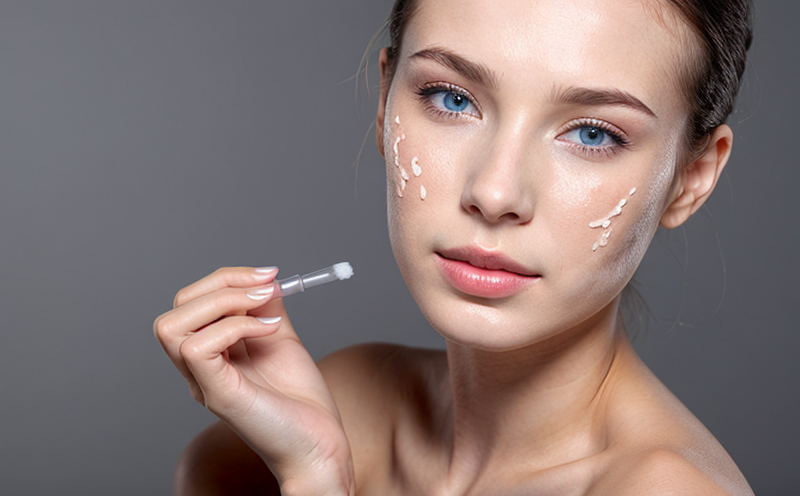In Vitro Skin Irritation Testing with Reconstructed Human Epidermis
The use of in vitro testing methods has gained significant traction within the cosmetics industry to ensure product safety and regulatory compliance. In particular, in vitro skin irritation tests using reconstructed human epidermis (RHE) have become a cornerstone for quality managers, compliance officers, R&D engineers, and procurement professionals. This technique not only reduces reliance on animal testing but also enhances the accuracy and relevance of toxicity assessments.
The reconstructed human epidermis is an advanced model that mimics the structure and function of human skin to a high degree. It provides a robust platform for evaluating the potential irritant effects of cosmetic ingredients, formulations, or finished products. This method adheres closely to international standards such as ISO 10993-10:2009, which sets out requirements for in vitro testing.
The testing process involves exposing the reconstructed human epidermis to the test substance under controlled conditions. The subsequent observation and analysis of cellular responses enable the identification of potential irritants with high specificity. This approach ensures that cosmetics are safe for consumer use while maintaining stringent adherence to regulatory guidelines.
One key advantage is the ability to perform rapid testing, often delivering results within 24-72 hours compared to traditional animal models which can take weeks or even months. Additionally, this method offers a more humane and ethical alternative by eliminating the need for live animals in safety assessments.
The reconstructed human epidermis model also supports the evaluation of various types of cosmetic products including lotions, creams, serums, and sunscreens. This versatility makes it an invaluable tool for product development and quality assurance.
For R&D engineers, this technology provides a critical resource in formulating new products that are both innovative and safe. The data obtained from these tests can significantly influence product design decisions, ensuring they meet global safety standards like those set by the European Union's Cosmetics Regulation (EC) No 1272/2008.
Another benefit is its cost-effectiveness in long-term use cases. While initial setup costs may be higher due to the sophisticated nature of RHE models, ongoing expenses are lower compared to continuous animal testing programs. This makes it an attractive option for companies looking to reduce operational costs without compromising on safety or regulatory compliance.
For quality managers and procurement officers, choosing in vitro skin irritation tests using reconstructed human epidermis ensures that their products meet stringent international standards, thus reducing the risk of recalls and legal challenges. It also demonstrates a commitment to ethical practices which is increasingly important for brand reputation and consumer trust.
Benefits
- High accuracy in identifying potential irritants
- Rapid testing with quick turnaround times (typically 24-72 hours)
- Ethical alternative to animal testing, aligning with growing consumer demand for cruelty-free products
- Versatility across various cosmetic product types including lotions, creams, serums, and sunscreens
- Cost-effective in long-term use cases despite higher initial setup costs
- Safety data that meets stringent international standards such as those set by the European Union's Cosmetics Regulation
Industry Applications
| Cosmetic Product Type | Testing Focus |
|---|---|
| Lotions and Creams | Evaluation of water content, pH levels, and emulsifiers' compatibility with RHE. |
| Sunscreens | Determination of UV protection efficacy and photostability under RHE conditions. |
| Serums | Assessment of active ingredients' penetration into the reconstructed epidermis layer for bioavailability. |
Eurolab Advantages
Eurolab, a leading accredited laboratory, offers state-of-the-art facilities equipped with advanced technology to conduct in vitro skin irritation tests using reconstructed human epidermis. Our expertise ensures that our clients receive reliable and accurate results every time.
- Absolutely compliant with international standards including ISO 10993-10:2009
- Experienced team of scientists specializing in cosmetic safety assessments
- Use of cutting-edge instrumentation to enhance testing precision
- Dedicated support throughout the entire testing process, from sample preparation to final report delivery





